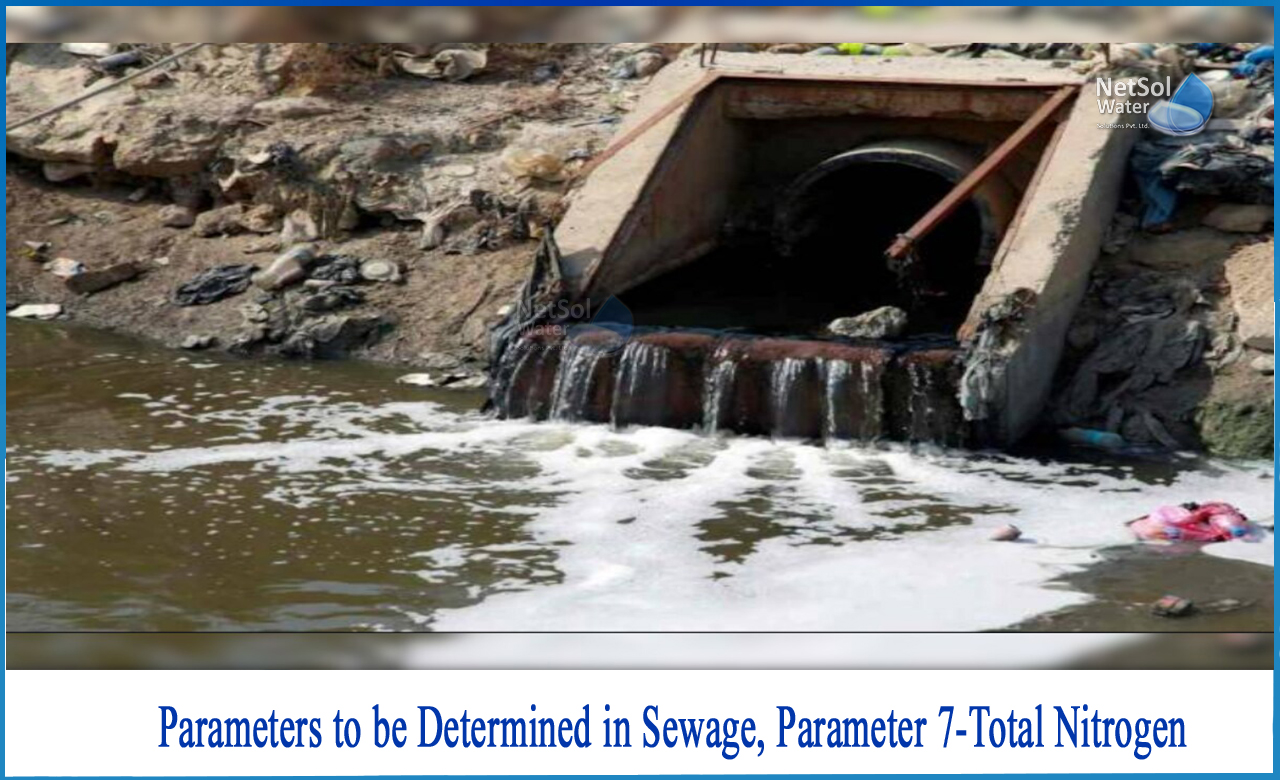What are parameters of sewage to be determined Total Nitrogen?
Municipal wastewater consists primarily of water (99.9%) and relatively low concentrations of suspended and dissolved organic and inorganic solids. Organics present in wastewater include carbohydrates, lignins, fats, soaps, synthetic detergents, proteins and their degradation products, and various natural and synthetic organic chemicals from the process industry.
Let us understand more about nitrogen:
Nitrogen occurs in many forms in nature. In summary, it begins as a plant/animal protein, which is quickly broken down into ammonia, which is then converted to nitrate (nitrification) and, given the appropriate environment, to nitrogen and oxygen gas in the atmosphere. The gaseous nitrogen is then returned to the food chain via nitrogen-fixing bacteria/algae and fertilizers. Next, we need to convert this nitrated wastewater into nitrogen and oxygen gases. This process is called de-nitrification. De-nitrification is more difficult to manage than nitrification. This occurs when nitrified wastewater is mixed with a carbon source (usually inflowing wastewater) for a sufficient period of time under anoxic conditions.
Nitrogen has four major forms in wastewater (traces of nitrogen gas).
As an independent component, total nitrogen is calculated as the sum of the four forms, as each major form is commonly used in the analysis. In freshly contaminated water,nitrogen is originally in the form of organic nitrogen and ammonia. Natural biochemical processes slowly convert organic nitrogen to ammonia. This is the form of nitrogen most commonly used by microorganisms as a nutrient in the processing process. The nitrate is the highest component in the wastewater until it is completely nitrified.
Total nitrogen is often abbreviated as TN or N. The reduction of TN is a two-step process called nitrification, in which ammonia (NH4) is converted to nitrate (NO3). The NO3 is then converted to nitrogen (N) and oxygen (O2) gases, and is called as de-nitrification.
Total nitrogen (TN) is the sum of nitrate nitrogen (NO3N), nitrite nitrogen (NO2N), ammoniacal nitrogen (NH3N), and organically bound nitrogen.
Do not confuse total nitrogen (TN) with TKN (total Kjeldahl nitrogen)!
TKN is the sum of ammonical nitrogen and organically bound nitrogen, but does not include nitrate nitrogen or nitrite nitrogen. The TN may be regulated as a wastewater parameter for urban and industrial wastewater treatment plants, but it is common to set limits on a single form of nitrogen, such as ammonia.Sewage treatment plants with TN restrictions usually need to be nitrified and denitrified to reach the TN restrictions.
Kjeldahl digestion converts organic nitrogen to ammonia, but it requires the collection of distillates. This is not easy to do with an online analyzer. The persulfate decomposition method oxidizes all nitrogen compounds to nitrate, but prior to analysis the sample must be heated with a decomposition reagent at 110 ° C for 30 minutes and then cooled to room temperature. It is also difficult to automate under field conditions.
Why reduce the nitrogen content in water?
There are several reasons to reduce total nitrate nitrogen:
1. Nitrate (NO3) can be toxic at doses greater than 45 mg/l.
2. Nitrite (NO2): The more unstable form of NO3 is highly toxic to aquatic species.
3. NO3 cannot be used for protein production as easily as ammonia (NH4), but it can leadto eutrophication (water is organically concentrated, increasing the dominance of aquatic plants and moistening). It is transformed into a dead zone and eventually dries
In reality, eutrophication usually does not progress beyond the flowering period of aquatic plants, but severe pollution can lead to the complete destruction of rivers/lakes. As of now total nitrogen limits of 15 mg/L or less are commonly set when renewing new wastewater treatment plants and existing wastewater discharge permits.
Conclusion
For the above stated reasons it is necessary to remove nitrogen from the wastewater.
Netsol Water is Greater Noida-based leading water & wastewater treatment plant manufacturer. We are industry's most demanding company based on client review and work quality. We are known as best commercial RO plant manufacturers, industrial RO plant manufacturer, sewage treatment plant manufacturer, Water Softener Plant Manufacturers and effluent treatment plant manufacturers. Apart from this 24x7 customer support is our USP. Call on +91-9650608473, or write us at enquiry@netsolwater.com for any support, inquiry or product-purchase related query.



